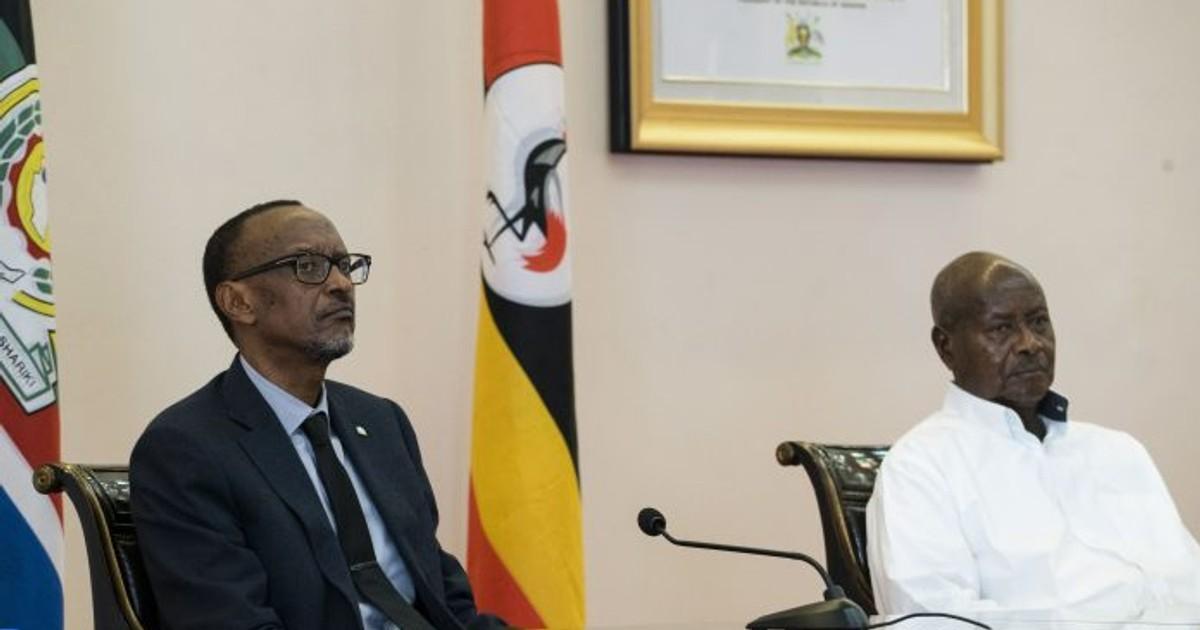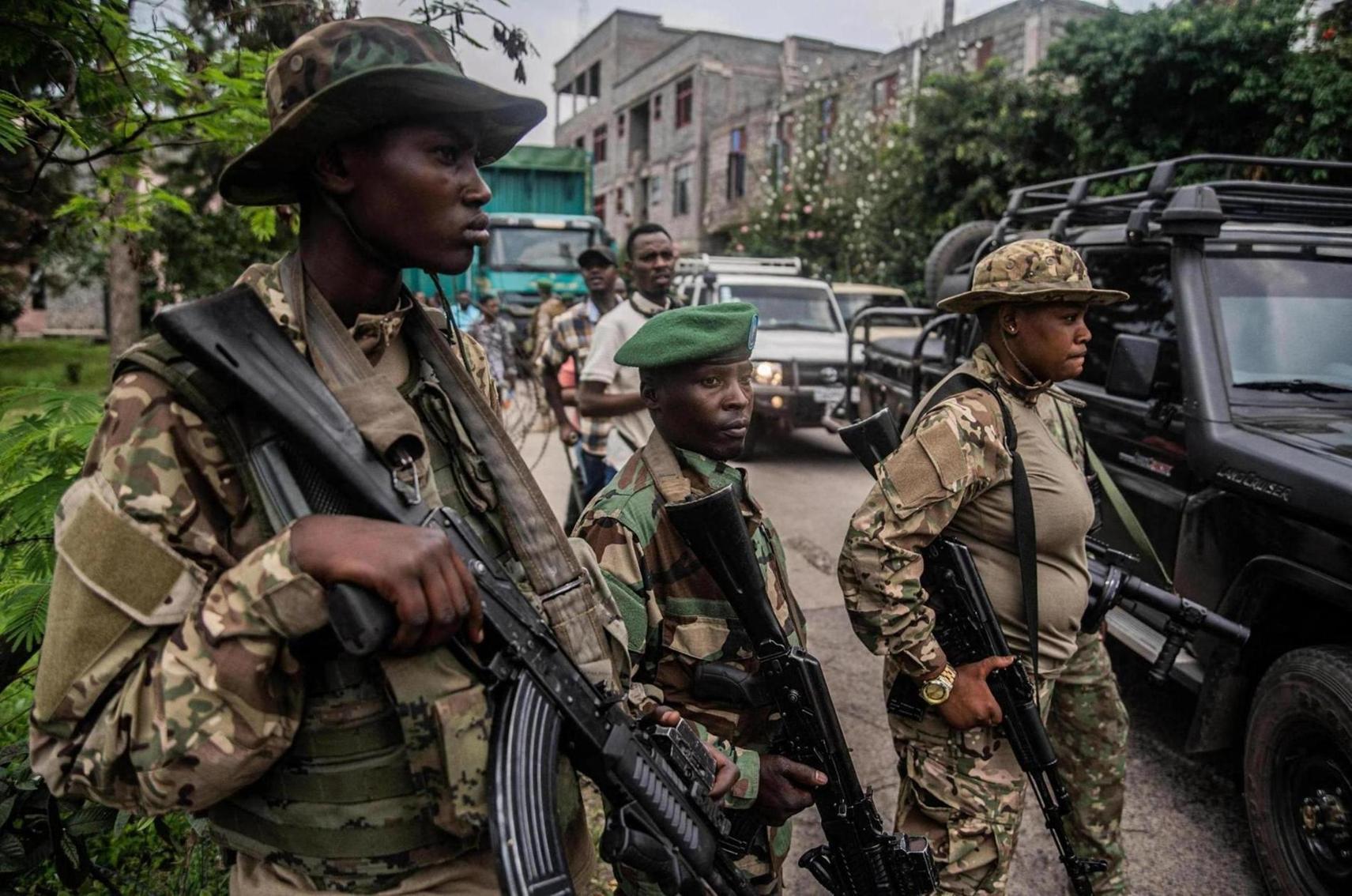By Faridah N Kulumba
Africa-Press – Uganda. Belgian Deputy Prime Minister and Minister of Foreign Affairs, European Affairs and Development Cooperation, Maxime Prévot visited Uganda on 25th April 2025 and held discussions with Uganda’s President Yoweri Kaguta Museveni regarding the crisis in Democratic Republic of Congo (DRC). The security situation in the DR Congo remains extremely precarious, this has led to many civilians losing their lives and many left homeless.
The visit intent
Belgium’s Prime Minister’s recent visit to Uganda was intended to continue diplomatic efforts to contribute to a lasting solution to the conflict in the eastern DR Congo. His travel to Uganda is part of his wider travel to Central Africa, including Burundi and the DR Congo. According to the Belgian embassy in Kampala, Prévot’s visit to Uganda, Burundi and DR Congo pursues several objectives which include: –
•Supporting ongoing mediation efforts and dialogue initiatives at the national and regional levels.
• Explain directly to the interlocutors the positions and the actions taken by Belgium in international forums.
• To consolidate relations between Belgium and the three countries and to listen to the perspectives of local authorities, members of civil society and the population.
• To take stock of the projects financed by Belgium in the region through direct, indirect and multilateral cooperation in order to underline Belgium’s commitment.
•To show Belgium’s solidarity with the populations affected by the violence, to highlight the humanitarian support provided by Belgium in the region and to stay aware of the existing needs in the context of future commitments.
•Support the development of Belgium’s economic relations with the region and with initiatives related to the business climate.
“In these contacts, Minister Prévot will also emphasise the need to address the root causes of the conflict in order to break the cycle of violence,” the Embassy said. These, according to the Belgian government include; respect for the territorial integrity of the Democratic Republic of Congo and each country in the region, and to put an end to the external support for armed groups; promote a cross-border economy based on formal circuits and value chain development in the exploitation and trade of natural resources and in the agriculture, forestry, hydroelectric energy and tourism sectors; resolve the refugee problem and allow for a voluntary, safe and dignified return to their communities of origin when conditions permit it; end the threat posed by the FDLR and stop all collaboration between the Congolese army and the FDLR, as well as with other armed groups.
Others include: to end hate speech and acts targeting specific communities, including Tutsi communities; ensure the implementation of a credible process for the disarmament, demobilisation and community reintegration of all armed groups; reform the Congolese army so that it can assume its role as guarantor of national sovereignty and of the security of the population; and effectively fight impunity, to guarantee justice and the rule of law, and to ensure the full protection and promotion of all human rights and fundamental freedoms.
Recent state of DRC
The situation is still intense due to the fighting between the DR Congo army and the Rwandan-backed M23 rebels that seized and controlled large swaths of mineral rich eastern Congo. The latest wave of violence in eastern Congo was spurred by M23’s lightning offensive in December 2024. The M23 captured Goma, the largest and provincial capital of eastern Congo.
Since then, the Rwandan backed armed group has been advancing rapidly and even declared intention to capture the Congolese capital, Kinshasa. Cease fire- On 23rd April 2025, the DR Congo government and M23 rebels agreed to pause fighting as they worked towards a broader peace deal. This followed the truce that was declared after a round of negotiations that were held in Qatar’s capital Doha.
“Both parties reaffirm their commitment to an immediate cessation of hostilities, a categorical rejection of any hate speech, intimidation, and call on local communities to uphold these commitments,” a joint statement issued by the M23 and DRC government read in part. It added that the cessation of hostilities would apply throughout the duration of the talks and until their conclusion.
Why Belgium PM’s visit excluded Rwanda
During Belgium’s recent tour of some East African country, he did not travel to Rwanda. It followed Rwanda cutting all diplomatic ties with Belgium over the conflict in DR Congo. In retaliation, Brussels recalled all its diplomats in Kigali, ending the two countries’ diplomatic relations. During the visit to Uganda, Belgium said that while it still considers Rwanda as a key player in the region and well-placed to resolve the conflict in the eastern DR Congo, it cannot be complacent about Rwanda’s violation of Congo’s territorial integrity.
Why Belgium using Uganda to mediate

Even though Belgium sought President Museveni’s tact in defusing the crisis in DR Congo, it was also understood that the meeting between Uganda and Belgium was a double-barrelled, seeking Museveni’s reach to mend relations between Belgium and Rwanda. Belgium’s Prime Minister described President Museveni as “a very valuable go-between in diplomatic contacts.”
Belgium-Uganda dialogue on the DR Congo falls within complex regional dynamics linked to four main dimensions: regional security, economic interests, and Belgium’s historical role in Central Africa:
1. The conflict in Eastern Congo
• Uganda has been involved for years in the conflict in eastern Congo, either through direct military interventions or by supporting armed groups (as in the past).
Last year, the UN-authorised investigators reported that Uganda’s military, the Uganda People’s Defense Forces (UPDF), directly and through its intelligence arm, the Defence Intelligence and Security (DIS), actively supports M23 and Alliance Fleuve Congo (AFC) rebel bands in the eastern Democratic Republic of Congo.
Also in February 2024, the Spokesperson of the Wazalendo Jules Mulumba released a statement accusing the UPDF soldiers of fighting alongside M23 rebels to capture Sake town in North Kivu Province. Mulumba also posted some pictures of UPDF armoured vehicles claiming that they are near Sake.
According to the Wazalendo’s statement, the Ugandan army with its artillery is in full manoeuvre in support of Kagame. However, the UPDF spokesperson, Brigadier General Felix Kulaigye in a statement described Mulumba’s accusations as falsehoods stating that UPDF soldiers have never stepped in Sake.
•This resource-rich region represents a constant hotspot of tension, impacting regional stability.
•Belgium, as a former colonial power, still sees itself as a “potential mediator” in such crises.
•Dialogue with Uganda comes into the context of easing tensions and pushing parties toward a political settlement, especially as the conflict between DR Congo and Rwanda also escalates.
2. Protecting Investments in Congo
•Belgium has economic interests in Congo, particularly in the mining sectors.
•Ongoing conflicts, especially involving Uganda and Rwanda, threaten these investments.
•It is in Belgium’s interest to support understandings with neighbouring states like Uganda to achieve stability along Congo’s borders.
3. Belgium’s Attempt to Reassert Its Regional Role
•In recent years, Belgium has been trying to renew its influence in Africa through more active diplomatic policies.
•Dialogue with Uganda on Congo shows that Belgium still sees itself as an “important player” in the matter, alongside other powers like France and the United States.
4. Belgium’s Interests in the Democratic Republic of Congo
•Belgium’s interests in the DR Congo are numerous, given the country’s immense wealth in natural resources, notably cobalt, copper, gold, diamonds, uranium, and rare minerals (essential for electronics and military industries). Belgian companies are still present, albeit sometimes indirectly, through investments and partnerships in mining and energy sectors.
•Congo is a traditional sphere of influence for Belgium in Africa, and Brussels seeks to maintain its presence through political and developmental support.
•A large number of Congolese migrants live in Belgium, forming a human and cultural bridge between the two countries. This diaspora influences Belgian domestic politics, especially regarding human rights issues and colonial history.
•Belgium remains one of the DR Congo’s largest donors and uses aid as a tool of political influence, supporting projects in health, education, and governance, often linking this support to political and economic reforms.
For More News And Analysis About Uganda Follow Africa-Press






